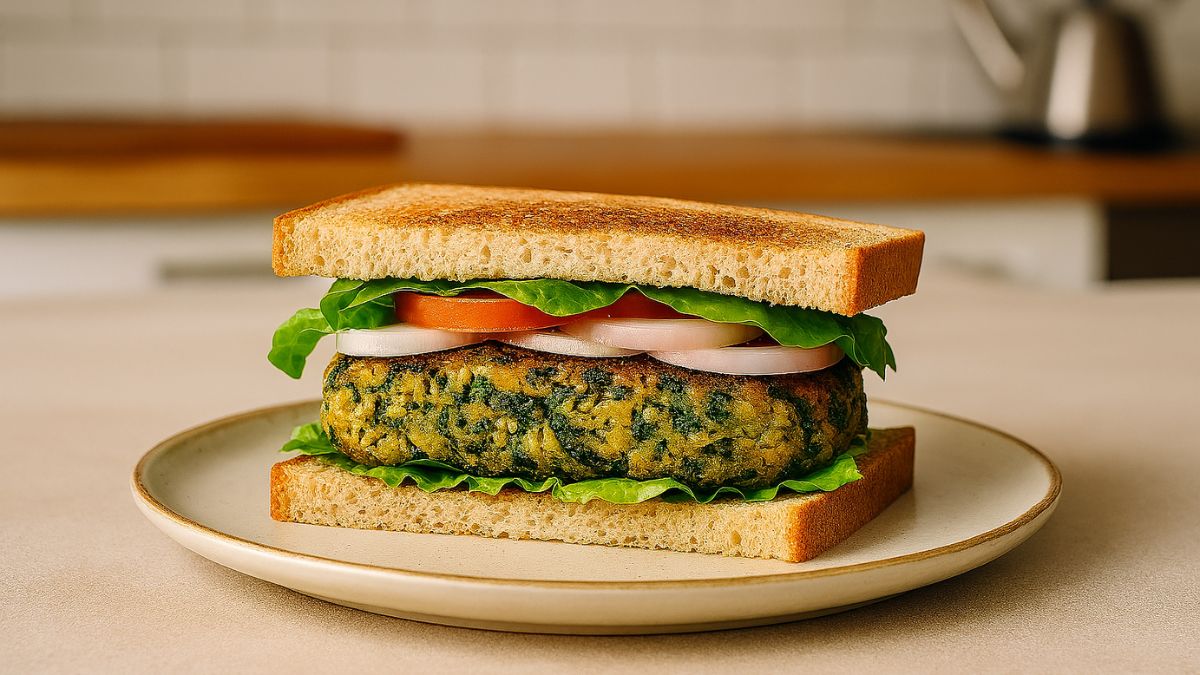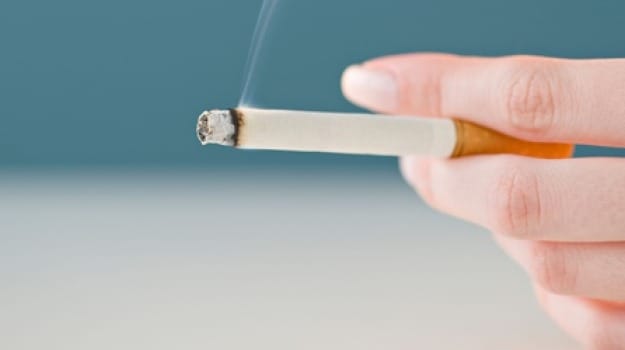Woman holding lit cigarette. Smoking remains the biggest preventable cause of cancer and is implicated in almost one in five cases. Photograph: Tetra Images/Alamy
Cancer Research UK estimates 587,000 Britons developed cancer over five years as a result of unhealthy habits such as smoking and drinking.
Almost 600,000 Britons developed cancer over five years as a result of unhealthy habits such as smoking, drinking and spending too much time in the sun, a new analysis reveals. The figures have prompted calls for people to improve their lifestyles to reduce their risk of cancer, for example by eating less processed meat, taking more exercise and losing weight.
Cancer Research UK (CRUK) estimates 587,000 cases of cancer diagnosed between 2007 and 2011 could have been avoided through healthier lifestyles.
For example, 314,600 cases were directly attributable to consumption of tobacco. Smoking remains the biggest preventable cause of cancer and is implicated in almost one in five cases. Another 144,800 cases were the result of a poor diet - eating too much red and processed meat and salt, and too little fruit, vegetables and fibre. Being overweight was closely linked to 88,100 other cases, while alcohol played a key role in 62,200 cases. Exposure to UV radiation from sunlight was involved in 55,900 cases and inadequate physical activity in 16,500.
In some cases the cancer was caused by more than one of the six lifestyle factors the charity analysed to see which represented the biggest danger.
"There's now little doubt that lifestyle choices can have a big impact on cancer risk, with research from around the world all pointing to the same key risk factors", said Prof Max Parkin, a CRUK statistician based at Queen Mary, University of London. He published an study in 2011 that identified for the first time the proportion of cancers that were due to 14 different factors. They also included exposure to the human papilloma virus; workplace risks, such as asbestos; and the increased risk of cancer as a result of never having breastfed.
"Leading a healthy lifestyle can't guarantee someone won't get cancer, but we can stack the odds in our favour by taking positive steps now that will decrease our cancer risk in future," added Parkin.
Cutting smoking rates by 1% could save 3,000 lives a year, said Harpal Kumar, CRUK's chief executive.
He urged ministers to do more to make it easier for people to adopt healthier lifestyles, especially by finally forcing cigarettes to be sold in plain packaging. "Alongside investment in health campaigns to help people reduce their risk of cancer, the government urgently needs to take action to stop children starting smoking by introducing standardised packaging for cigarettes without delay", he added.
Smoking's role in cancer, as well as in heart and lung disease, meant that anyone keen to overhaul their lifestyle should make that their top priority, CRUK says.
Dr Dan Poulter, the health minister, said smoking had fallen to its lowest ever level - 19% of adults light up - and 1bn units of alcohol had been removed from the market over three years through promotion of responsible drinking.
"We have also removed thousands of calories from everyday food and drink products through our voluntary partnerships and we are the first country in Europe to introduce a successful voluntary labelling scheme so people can see at a glance how much sugar, salt and fat is in the food they are eating", Poulter added.
About a third of cancers could be prevented through a healthy diet, normal weight and regular exercise, said Dr Rachel Thompson, head of research interpretation at the World Cancer Research Fund.
"We know that being overweight or obese is strongly associated with nine cancers, and drinking alcohol is strongly associated with several cancers. We also know that eating vegetables and fruits, and being physically active, decreases the risk of several cancers, and [that] eating red and processed meat increases the risk of bowel cancer", said Thompson.
People who eat processed meat regularly should try to cut down, while no one should eat more than 500g a week of cooked red meat, she advised.
Dr Ann Hoskins, deputy director for health and wellbeing for Public Health England, said everyone in England aged between 40 and 74 should go for an NHS Health Check and use it as an opportunity to make lifestyle changes.
This article was originally published on The Guardian










